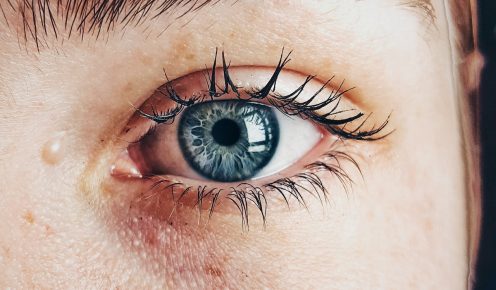Diabetes is a chronic, long-term condition that affects the body’s ability to produce and use insulin. When left untreated or not properly managed, diabetes can have serious consequences to your health. One of the more concerning complications of diabetes is vision loss due to damage to the eyes.
But what exactly are the problems that diabetes can cause and what can be done about it? In this blog post, we’ll explore the issues associated with diabetes-related eye problems and how they can be prevented or treated.
Diabetic Retinopathy
Diabetic retinopathy is a serious complication of diabetes that can lead to blindness. It occurs when the blood vessels in the retina, the layer of tissue in the back of the eye that senses light and allows us to see, become damaged.
The retina is a very sensitive part of the eye, and even a small amount of damage can have serious consequences. In the early stages of diabetic retinopathy, there may be no symptoms at all. As the disease progresses, symptoms may include:
• Blurry vision
• Floaters (small specks or strings that float in your field of vision)
• Flashes of light
• Difficulty seeing at night
If left untreated, diabetic retinopathy can progress to more severe stages, which can lead to complete blindness. The good news is that diabetic retinopathy is preventable, and there are treatments available that can help preserve vision even in advanced cases.
Click here to check some attractive looks of Eyes: Sanpaku Eyes attractive
Glaucoma
Glaucoma is one of the leading causes of blindness and vision impairment worldwide. It is a progressive degenerative disease of the optic nerve, which results in damage to the nerve fibers and loss of nerve tissue. This eventually leads to vision loss and blindness.
There are two main types of glaucoma – open-angle glaucoma and angle-closure glaucoma. Open-angle glaucoma is the most common type, accounting for about 90% of all cases. Angle-closure glaucoma is less common but more severe, and can lead tovision loss within days or weeks if left untreated.
Glaucoma can be difficult to detect in its early stages because it often does not cause any symptoms. For this reason, it is important to have regular comprehensive eye examinations, so that any changes in the optic nerve can be detected early and appropriate treatment can be started.

Cataracts
As we age, cumulative sun exposure and other factors can lead to the development of cataracts, or clouding of the eye’s lens. People with diabetes are at increased risk for cataracts. Additionally, diabetic retinopathy (DR), or damage to the blood vessels in the retina, is a leading cause of blindness in American adults. Approximately 24 million Americans have DR, but only half are aware they have it.
One of the most common problems associated with diabetes is cataracts. Cataracts are a clouding of the eye’s lens, and they can make it difficult to see. Diabetes can cause cataracts to form at an earlier age than usual and can make them worse.
Cataract surgery is a common procedure, and it is usually successful in improving vision. However, people with diabetes are more likely to experience complications from cataract surgery, such as infection or retinal detachment.
For more information visit our page: Sanpaku Eyes Attractive
How to Protect Your Eyes If You Have Diabetes
If you have diabetes, it’s important to take steps to protect your eyes. Diabetes can cause a condition called diabetic retinopathy, which can damage the blood vessels in your retina and lead to vision problems.
There are several things you can do to protect your eyes if you have diabetes:
• Have your eyes checked regularly by an eye doctor. This is especially important if you have diabetes.
• Control your blood sugar levels. The higher your blood sugar levels are, the more likely you are to develop diabetic retinopathy.
• Quit smoking. Smoking increases your risk of developing diabetic retinopathy.
• Keep your blood pressure under control. High blood pressure can damage the blood vessels in your retina and lead to vision problems.
If you have diabetes, you are at risk for developing several eye problems, including diabetic retinopathy, cataracts, and glaucoma. You can help protect your eyes by:
– Having regular comprehensive dilated eye exams. These exams allow your doctor to check for early signs of diabetic retinopathy and other eye problems.
– Keeping your blood sugar levels under control. Good blood sugar control can slow the progression of diabetic retinopathy and other diabetes-related eye problems.
– Wearing sunglasses or protective eyewear when outdoors. This can help protect your eyes from the harmful effects of ultraviolet (UV) light.
– Quit smoking. Smoking increases your risk for developing cataracts and other serious eye problems.
Conclusion
Diabetes can have serious complications for your eye health, so it is important to be aware of these potential problems. Uncontrolled diabetes can lead to diabetic retinopathy, glaucoma, cataracts and macular edema. If you have diabetes, visit an optometrist regularly to check for symptoms or changes that could indicate a problem with your eyes. By taking the necessary steps to manage your diabetes and maintain regular vision care appointments, you may be able to prevent any lasting damage from occurring in the future.













